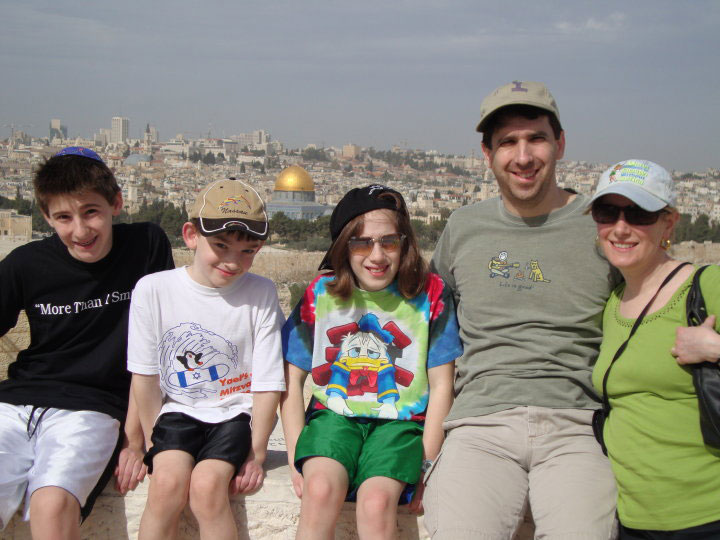
When Gary and Dori Weinstein’s third child entered this world, they wanted to share their love of Judaism from the beginning. So, just as they did for his older siblings, they gave him a Hebrew name: Eitan.
“We chose to give him a Hebrew name as part of a connection,” shares Gary. “His brit milah (circumcision) ceremony wasn’t ultra-traditional but my wife and I put a lot into writing a ceremony that brought in tradition as well as our own spin on how we see the world. Judaism was part of Eitan long before he knew what was going on.”
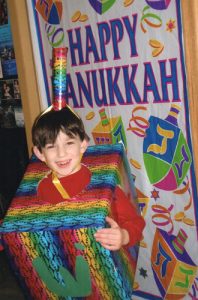
As Eitan grew, Jewish values, traditions and rituals were everywhere. He attended synagogue, Jewish pre-school and day school. The family enjoyed Shabbat dinner together, and even when they vacationed, they looked for places to spend Shabbat. And when Eitan and his siblings went to bed, his parents sang Jewish songs, always ending their nightly ritual with the Shema prayer.
“Being sung the Shema was engrained in me throughout my life,” Eitan remembers. “I didn’t go to sleep any night without hearing this from one or both of my parents. It created an environment where Judaism wasn’t just something experienced at day school or synagogue.”
One of Gary’s favorite family traditions with Eitan and his siblings was building and sleeping in a sukkah every fall, when frigid nights are a given where this family lives in Minneapolis, Minnesota. “Some of our best conversations have been in the sukkah,” he says.
Although Eitan left the sukkah in the middle of the night when he first joined in the tradition, he now agrees with his father: “When I was old enough to really participate, it was meaningful for me to be able to fully immerse myself in the ritual. For a while, it was just camping out in the driveway. But as time went on, it became really special.”
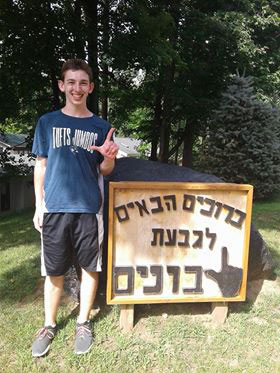
Later, as Eitan became a young man, the Weinsteins shared other passions. In 6th grade at his Jewish day school, Eitan made a tallit (prayer shawl) with artwork showing scenes from his Bar Mitzvah Torah portion. When he shared it with his parents, they shared with him an ethical will expressing how they view their Jewish values. It said, “At your bris, we brought you into the covenant of our people under the tallit of your great-grandfather. It was under that same tallit that your parents, uncles, aunts and cousins were married. We hope that someday you will marry under the chuppah and find a tallit that’s been an integral part of your life. We expect it to be different from ours, but meaningful to you.”
Gary and Dori also shared their love for tzedakah (charitable giving) as they planned Eitan’s Bar Mitzvah. They proposed that, like his older siblings had done, he ask guests to contribute to a tzedakah fund instead of giving him presents. He set up a Genesis Mitzvah Fund through the Minneapolis Jewish Community Foundation so that on a continual basis he could allocate money he received. “When I started this at 13, it felt like something meaningful and important,” says Eitan. “I spoke about the IDF (Israel Defense Forces) during my Bar Mitzvah and I have supported that. I have also donated to the EMTZA (Midwest) regional USY scholarship fund and to Camp Ramah, a Jewish summer camp in Wisconsin that has been so formative in my Jewish experience.”
“Eitan has really embraced Judaism and does some things in similar ways to his parents and some in different ways, and we celebrate that,” says Gary. “That’s what we want—for him to find ways to make it meaningful to him.”
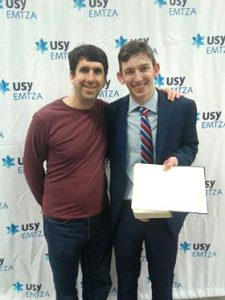
One of Gary and Eitan’s similarities is USY leadership. Eitan recently began serving as the EMTZA regional president—a role his father held decades before him. “It’s been a very impactful experience filling this same role,” says Eitan. “It really hit me when I signed my name in the siddur (prayer book) that has been in the region since the ‘60s. Every regional president has signed it and as I was flipping through the pages, I saw my father’s name.”
Eitan has also followed in his father’s footsteps, in his own way, when it comes to Passover. “Our family has lots of wacky and goofy traditions, so our Seders are far from cut and dry,” he says. “My dad has really tried to engage people in fun ways to make them want to be part of the narrative. That has shaped how I approach my Judaism; I want to find the fun in it, as well as the deeper meaning.” This year, Eitan led one of the Seders. “It was empowering to see the rest of my family supporting me as I prepared a discussion about the narrative of the exodus. It allowed me to take my Jewish ritual to the next level.”
Eitan is also finding his way when it comes to being shomer Shabbat. Growing up, Eitan’s family observed Shabbat in a way that was meaningful, but perhaps not fully traditional. “I didn’t question it until I got to the beginning of my sophomore year in high school and had just come back from Camp Ramah,” Eitan explains. “At first, it was a little difficult in the house because we were at different observance levels. Since then, we’ve reached a good balance where I can observe the way I want to, and my parents can as well.”
For example, Eitan chooses to wear a kippah wherever he goes. “I have been wearing it to school for pretty much a full year now. My dad wears one when we go to shul and on Shabbat, but not all the time.”
Eitan also doesn’t use his cell phone in his observance of Shabbat, which makes it a challenge when he has to walk miles to and from swim practice on Saturdays in the winter. “There are times when it’s particularly snowy and icy and we worry about him slipping or getting hurt,” shares Gary. “I asked to walk with him and Eitan was reluctant at first, but my response was that it’s a wonderful thing in our hectic lives that we can walk and talk with no distractions. We’re finding ways to make it work and be positive.”
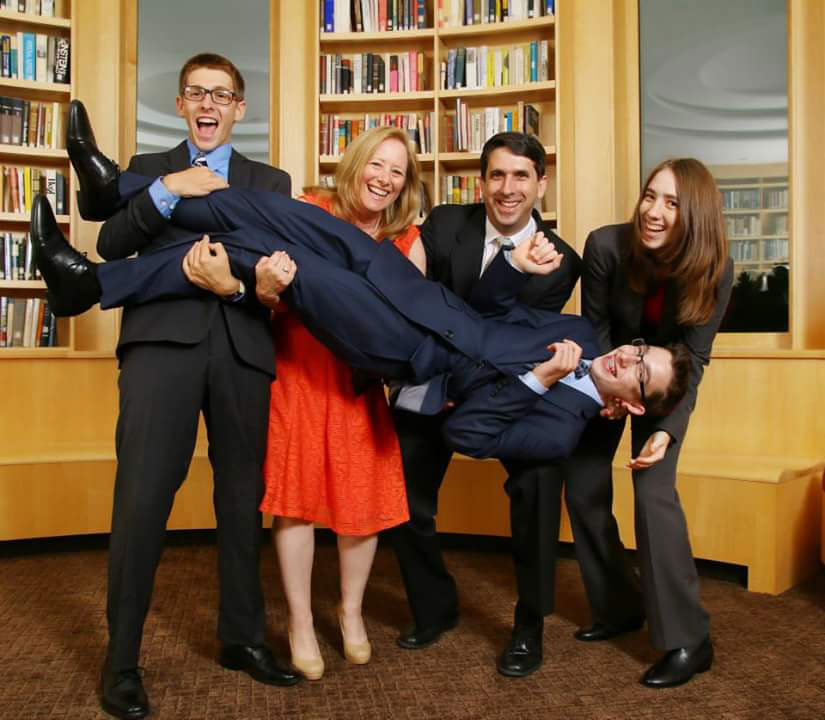
Looking back, Eitan is thankful for a lot of things—one, that his parents sent him to Jewish summer camp. “I think my parents sending me was one of the most impactful things they could have done in giving me the opportunity to shape my own Judaism and worldview,” he shares. “My favorite Jewish memories and experiences all come back to being at Ramah.”
He is also thankful his dad has given him room to grow into the person he wants to be. “When I was younger, there was molding and structure, but for the past few years, he’s given me the resources and freedom to think critically about the world and my own path.”
For Gary, a recent moment of pride came when Eitan wrote down his thoughts about the recent synagogue shooting near San Diego, California, and later shared what he wrote on social media. When Gary and Eitan were together at an event after the posting, the youth director from when Gary served as USY regional president approached them saying he used Eitan’s writing to lead a staff study session at his synagogue. “It’s wonderful from a parent’s perspective to see this and think what it will be like in the years ahead as Eitan grows and blooms and comes into his own even more,” Gary says. “We’re in awe of him on a continual basis.”
Click here to read an article on raising Jewish children in this day and age.
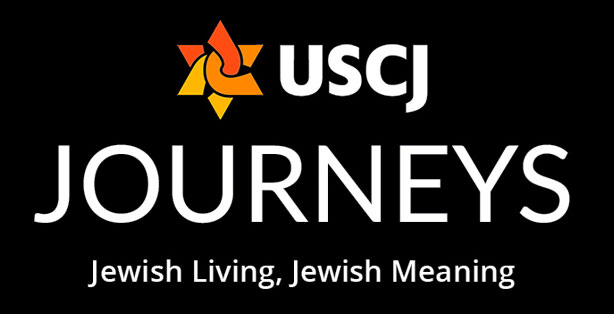
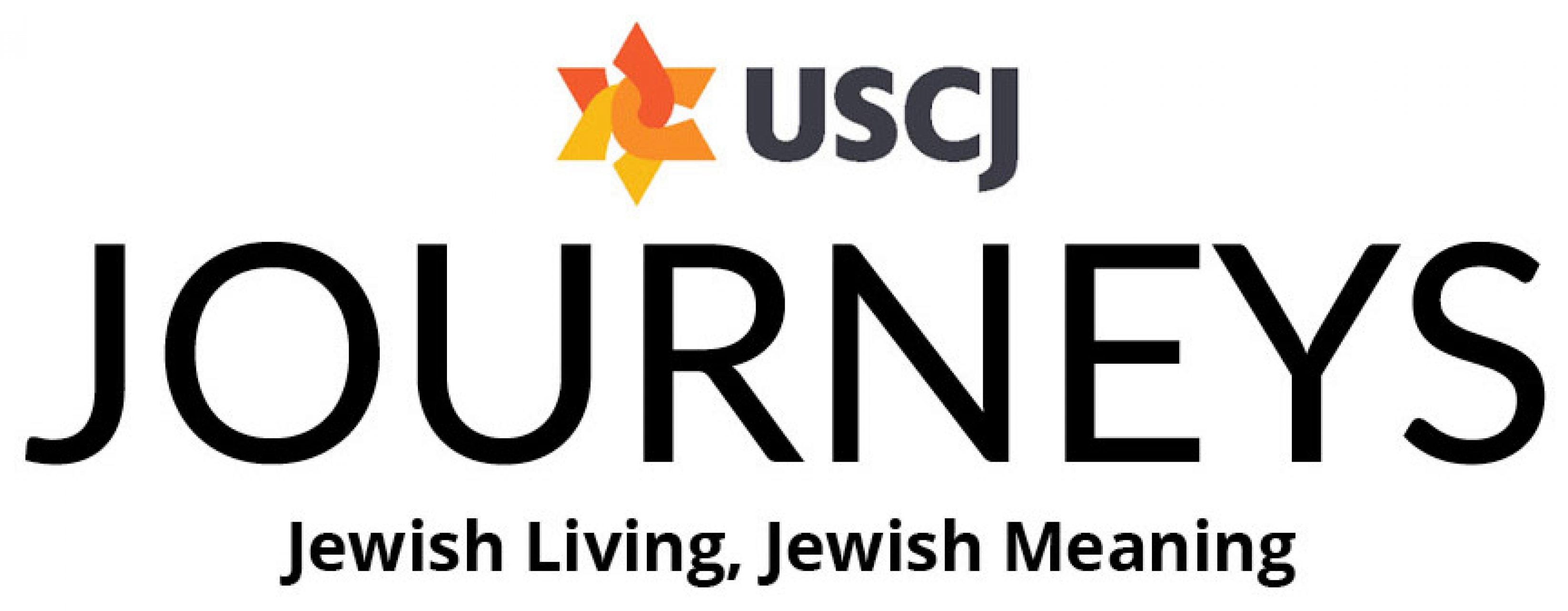
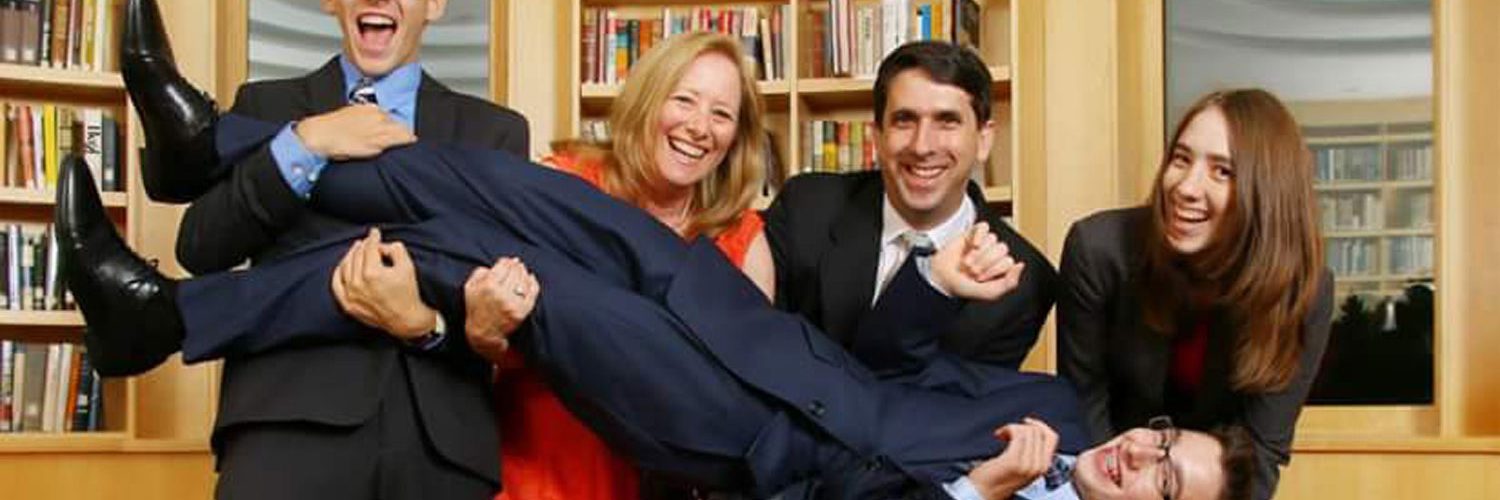

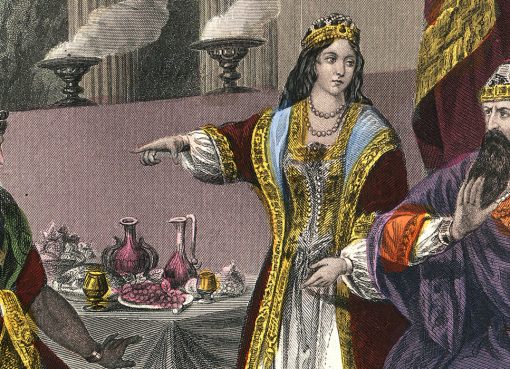
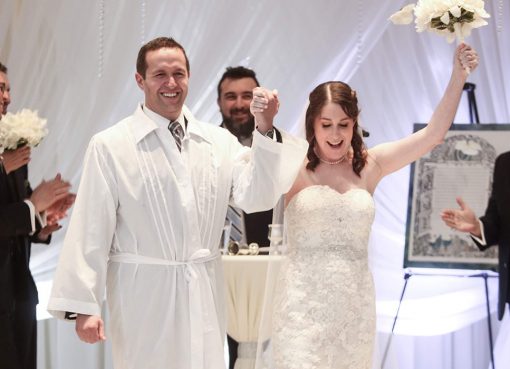
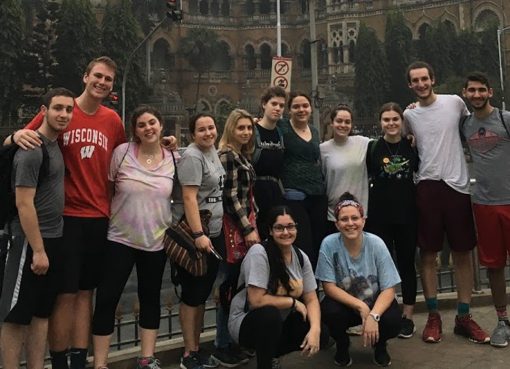

Comment here